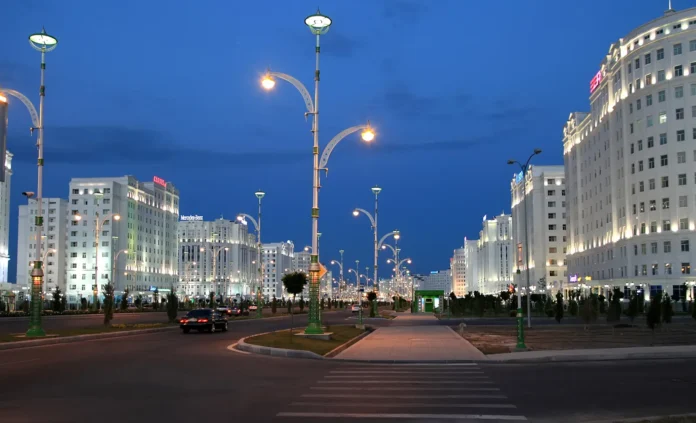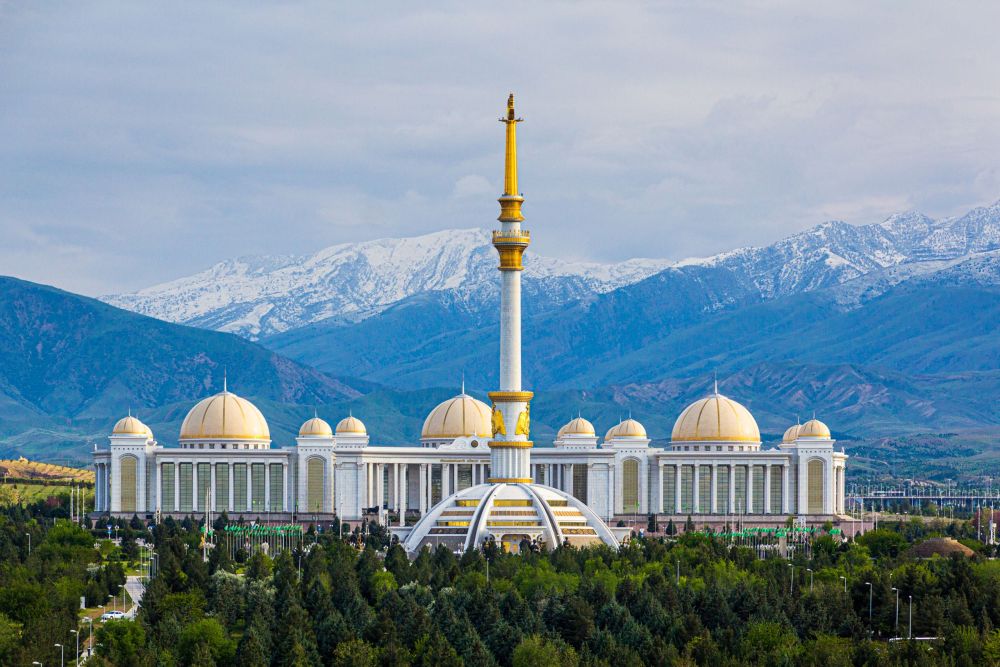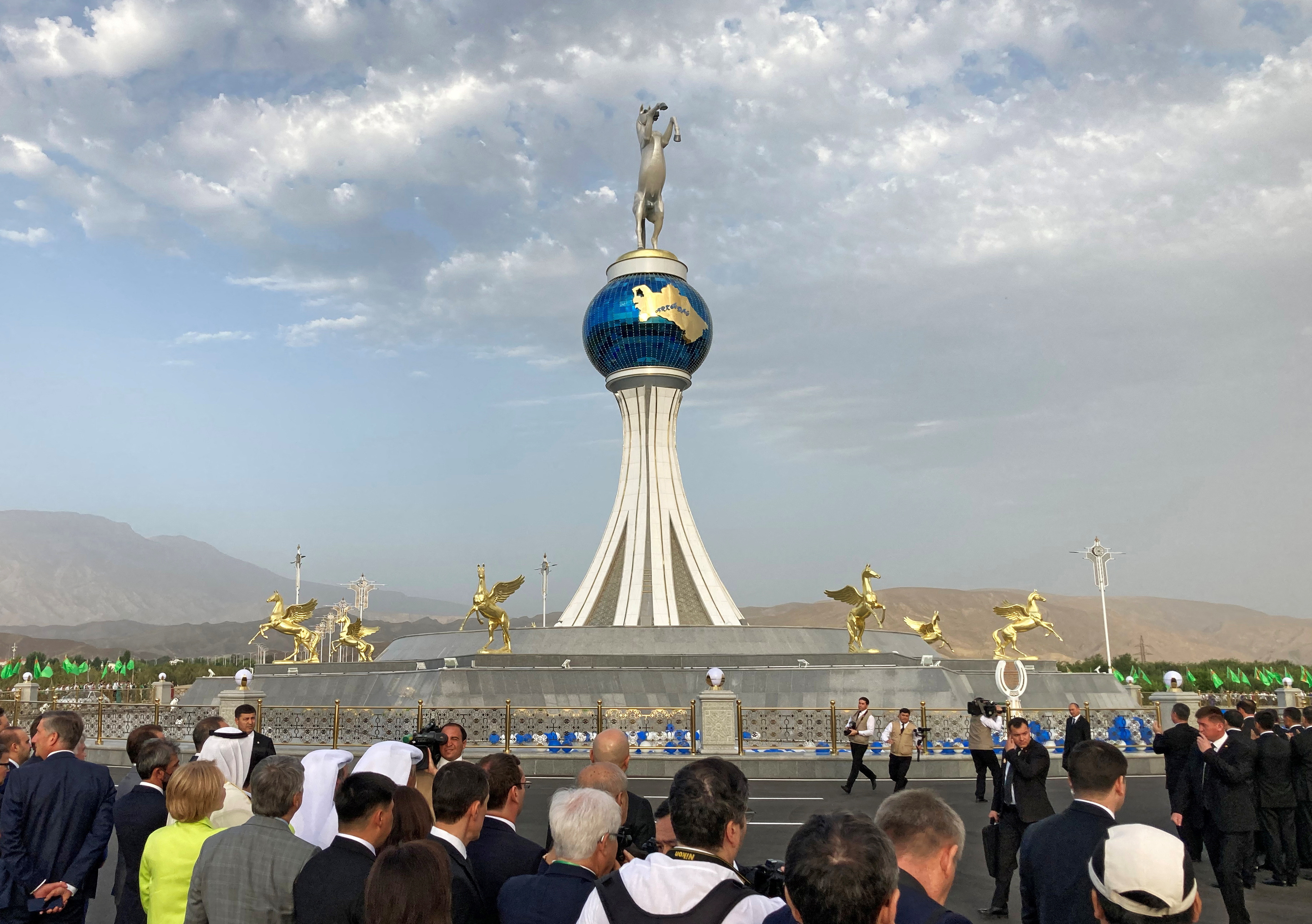Introduction to Turkmenistan
A suitable business location, nestled in Central Asia, Turkmenistan is a nation renowned for its rich cultural heritage, historical importance, and abundant natural resources. Home to approximately 6 million people, the country is characterized by its vast deserts, including the iconic Karakum Desert, and its historical prominence as a vital hub along the ancient Silk Road. With a unique blend of tradition and modernity, Turkmenistan offers a fascinating glimpse into a country where cultural legacy meets strategic economic potential.
Quality of Life in Turkmenistan
Turkmenistan’s standard of living is shaped by its economic structure and state-driven policies, which aim to provide essential services to residents.
- Subsidized Utilities and Services:
Citizens benefit from heavily subsidized utilities, including electricity, gas, and water, significantly reducing household expenses. These subsidies reflect the government’s commitment to ensuring affordability. - Healthcare and Education:
Both sectors are state-supported, making basic medical care and education accessible to the population, particularly in urban areas like Ashgabat. - Economic Challenges:
Despite these efforts, economic disparities persist. Employment opportunities are largely concentrated in agriculture, the energy sector, and government roles, with rural regions lagging behind urban centers in infrastructure and amenities. Inflation and currency devaluation have increased the cost of imported goods, but subsidies help cushion the impact for most citizens.
Income Taxation System in Turkmenistan
Turkmenistan’s tax structure is straightforward and aims to balance state revenue generation with affordability for individuals.
- Flat Income Tax:
Residents pay a flat income tax rate of 10% on their earnings, covering salaries and other income sources. Non-residents are taxed at a higher rate of 15% for income earned within the country. - Tax Deductions and Exemptions:
Low-income earners and those with dependents can benefit from various deductions, reducing their overall tax liabilities. Turkmenistan’s moderate tax rates ensure affordability for its citizens while supporting government services.
Corporate Tax Policies in Turkmenistan
Turkmenistan’s corporate tax regime is designed to leverage its energy wealth while fostering business growth.
- Corporate Income Tax Rates:
Domestic companies are subject to an 8% tax rate on profits, one of the lowest in the region. For foreign companies operating in Turkmenistan, the corporate tax rate is 20%. - Natural Resource Taxation:
Enterprises involved in oil and gas extraction are required to pay additional taxes and royalties, with rates varying based on the type and quantity of resources extracted. - Foreign Investment Incentives:
To attract international businesses, Turkmenistan offers tax holidays and exemptions for projects in priority sectors like energy, manufacturing, and infrastructure.
Key Sectors Driving Turkmenistan’s Economy
Turkmenistan’s economy is anchored by its natural resources, with significant contributions from other growing industries.
- Energy Sector:
Boasting the fourth-largest natural gas reserves globally, the energy sector is the backbone of Turkmenistan’s economy. Exports to countries such as China, Russia, and Iran drive economic growth. Major projects, like the Turkmenistan-Afghanistan-Pakistan-India (TAPI) pipeline, underscore the country’s pivotal role in regional energy security. - Agriculture:
Agriculture employs a significant portion of the population. Cotton, often referred to as “white gold,” dominates exports and supports the domestic textile industry. Other notable products include wheat, fruits, and vegetables. - Textile Industry:
Leveraging its agricultural outputs, Turkmenistan has developed a thriving textile sector, producing high-quality fabrics, garments, and home furnishings. Government investments aim to enhance this industry’s export potential. - Construction and Infrastructure:
Urban development is a priority, with Ashgabat showcasing grand, marble-clad architecture. Investments in roads, railways, and urban projects highlight the government’s commitment to modernizing the nation. - Tourism:
Though underdeveloped, tourism is gaining traction. Attractions like the ancient city of Merv and the Darvaza Gas Crater draw international visitors, while the government promotes eco-tourism and cultural tourism to diversify the economy.
Inflation and Living Costs in Turkmenistan
Turkmenistan’s controlled economy and reliance on subsidies shape its inflation trends and cost of living.
- Inflation Trends:
Inflation is influenced by fluctuations in global energy prices and currency valuation. The government mitigates these impacts by controlling the prices of staples such as bread, fuel, and utilities. - Cost of Living Breakdown:
- Housing: Rental costs vary significantly, with urban areas like Ashgabat seeing prices between $200 and $500 per month for a one-bedroom apartment, while rural housing is considerably cheaper.
- Utilities: Subsidized electricity, gas, and water make utilities exceptionally affordable, a rare advantage in today’s global economy.
- Groceries: Local produce is reasonably priced, but imported goods are expensive due to high import duties.
- Transportation: Public transport options like buses and shared taxis are incredibly inexpensive, making daily commuting affordable for residents.
Property Taxation and Other Levies in Turkmenistan
Turkmenistan implements various taxes on property and specific goods to generate public revenue and promote economic self-reliance.
- Property Tax:
Property taxes in Turkmenistan are assessed annually on the market value of residential and commercial properties. The rates depend on factors such as property type, location, and usage. Property owners are responsible for ensuring timely payment to local authorities. - Additional Taxes:
- Land Tax: Imposed on both agricultural and urban landowners, this tax varies based on land use and location.
- Excise Duties: Levied on specific goods like alcohol and tobacco, excise duties aim to regulate consumption and generate revenue.
- Customs Duties: High tariffs on imported goods are intended to encourage domestic production and reduce reliance on imports.
Business Structures Available in Turkmenistan
Entrepreneurs establishing businesses in Turkmenistan have several options for structuring their enterprises, each with distinct advantages.
- Sole Proprietorship:
This straightforward business model is owned and managed by a single individual. While ideal for small-scale operations, it does not offer a legal separation between personal and business liabilities. - Partnership:
Partnerships involve two or more individuals or entities sharing ownership, profits, and responsibilities. General partnerships involve shared liability, while limited partnerships allow some partners to limit their financial exposure. - Limited Liability Company (LLC):
LLCs are the most popular choice for foreign investors due to their limited liability protections and operational flexibility. Establishing an LLC requires a minimum capital contribution and registration with the Ministry of Finance. - Joint-Stock Company (JSC):
Designed for larger businesses, JSCs can issue shares to raise capital. They are subject to stricter regulations and transparency requirements compared to other business structures. - Representative Office:
Foreign companies can set up representative offices in Turkmenistan to conduct non-commercial activities like market research or establishing connections without engaging in trade. - Branch Office:
A branch office serves as an extension of a foreign company, allowing it to conduct commercial activities. These branches must comply with local tax and regulatory requirements.
Essential Licenses for Business Operations in Turkmenistan
Starting a business in Turkmenistan requires adherence to various regulatory procedures, including acquiring necessary licenses and permits.
- Business Registration:
All businesses must register with the Ministry of Finance and Economic Affairs. The process involves submitting essential documents such as a business plan, proof of capital, and details of shareholders or partners. - Sector-Specific Licenses:
Certain industries, including energy, construction, and tourism, require additional permits issued by relevant government bodies. - Tax Identification Registration:
Businesses must register with the tax authorities to obtain a Tax Identification Number (TIN), a prerequisite for operating legally. - Trade Licenses:
Companies involved in trade must secure authorization from the Ministry of Trade to carry out commercial activities. - Work Permits for Foreign Employees:
Employers hiring expatriates need to obtain individual work permits for each foreign worker, ensuring compliance with local labor laws.
Opportunities for Expatriates in Turkmenistan’s Business Landscape
Turkmenistan presents numerous opportunities for expatriates to contribute to and benefit from its growing economy, especially in key development areas.
- Energy and Natural Resources:
With some of the world’s largest reserves of natural gas, Turkmenistan offers significant opportunities for ex-pats skilled in exploration, renewable technologies, and energy infrastructure projects. - Agriculture and Food Processing:
Expats can introduce modern farming techniques, advanced irrigation systems, and food processing technologies to enhance productivity and meet export demands. - Infrastructure Development:
The government’s focus on expanding infrastructure has created a demand for expertise in construction, urban planning, and engineering, providing lucrative opportunities for foreign professionals and companies. - Tourism and Hospitality:
Investment in hotels, travel services, and eco-tourism initiatives is gaining traction, with the country’s historical landmarks and natural wonders attracting global interest. - Education and Training:
There is a growing need for language instruction, vocational training, and professional courses. Expat businesses specializing in these areas can establish institutes or partner with local organizations to address these needs.
Pathways to Residency and Citizenship for Expats in Turkmenistan
Expats seeking to reside or gain citizenship in Turkmenistan must navigate specific requirements and processes.
- Residency Permits:
Temporary and permanent residency permits are available based on the purpose of stay, such as employment, investment, or family reunification. Permanent residency requires sponsorship by a local entity and demonstrates a long-term commitment to living in Turkmenistan. - Naturalization Process:
Citizenship is granted under stringent conditions, including a minimum of seven years of continuous residence, fluency in the Turkmen language, and proof of financial stability. Turkmenistan does not recognize dual citizenship, so applicants must renounce their original nationality. - Investment-Based Residency:
Significant investments in local businesses or real estate can simplify residency applications. However, pathways to citizenship through investment remain limited, with a greater focus on encouraging long-term economic contributions.
Why Establish a Company in Turkmenistan?
Turkmenistan, a Central Asian nation endowed with vast natural resources, presents unique opportunities for entrepreneurs and investors. Registering a company in Turkmenistan offers several strategic benefits:
- Abundance of Natural Resources:
As one of the world’s largest holders of natural gas reserves, Turkmenistan is a lucrative destination for energy companies. The government’s focus on expanding the energy sector creates promising opportunities in exploration, production, and infrastructure. - Strategic Geographic Position:
Located at the crossroads of Europe, Asia, and the Middle East, Turkmenistan serves as a vital hub for trade and logistics, making it an attractive choice for businesses in transportation, export, and infrastructure. - Incentives for Investors:
The government actively encourages foreign investment in key sectors such as energy, agriculture, construction, and tourism. Incentives like tax holidays, exemptions, and reduced tariffs are designed to attract international businesses. - Focus on Infrastructure Development:
Turkmenistan has prioritized modernization through extensive infrastructure projects. Entrepreneurs in construction, engineering, and manufacturing can benefit significantly from this developmental focus. - Potential in Emerging Markets:
Turkmenistan’s underdeveloped sectors, such as retail, tourism, and services, offer ample growth opportunities. Businesses entering these areas can tap into an expanding economy with relatively low competition.
Steps to Register a Company in Turkmenistan
Establishing a business in Turkmenistan involves a structured process that ensures legal compliance:
- Select an Appropriate Business Structure:
Entrepreneurs can choose from various business models such as sole proprietorships, partnerships, limited liability companies (LLCs), or joint-stock companies. Foreign investors may also opt for representative or branch offices. - Reserve a Unique Company Name:
The proposed business name must be distinctive and approved by the Ministry of Finance and Economic Affairs. - Prepare Required Documents:
Essential documentation includes:- Articles of Incorporation or Association.
- A detailed business plan outlining the company’s objectives and activities.
- Identification and proof of residence for shareholders and directors.
- Proof of initial capital investment.
- Register with the Ministry of Finance and Economic Affairs:
Submit the prepared documents to the ministry for review and approval, formalizing the company’s legal establishment. - Complete Tax Registration:
Obtain a Tax Identification Number (TIN) from the State Tax Service to comply with local tax regulations. - Secure Licenses and Permits:
Depending on the business type, sector-specific licenses may be necessary. For instance, energy companies require authorization from the Ministry of Oil and Gas, while construction firms must obtain sector-specific permits. - Open a Corporate Bank Account:
Establishing a local corporate bank account is essential for managing financial transactions.
Expenses Associated with Business Registration in Turkmenistan
The costs of registering a business in Turkmenistan vary by sector, scale, and company structure. Typical expenses include:
- Registration Fees:
Initial fees range between $500 and $1,500, depending on the business type and scope. - Sector-Specific Licenses:
Licensing costs vary significantly, from $1,000 to $10,000 annually, with energy-related businesses often incurring higher expenses. - Professional Services:
Legal and financial advisory services to navigate the registration process can cost between $1,000 and $5,000. - Initial Capital Requirements:
Certain business types, like joint-stock companies, require a minimum capital investment, the amount of which depends on industry regulations. - Annual Maintenance Costs:
Fees for license renewals, tax filings, and compliance reporting generally range from $500 to $2,000.
Turkmenistan’s Diplomatic and Trade Relations
Turkmenistan’s neutral foreign policy fosters diverse economic and diplomatic relationships worldwide:
- Energy Export Agreements:
Natural gas exports to countries like China, Russia, and Iran form the backbone of Turkmenistan’s economy. Projects such as the Turkmenistan-China pipeline highlight its significance in global energy trade. - Regional Trade Partnerships:
As a member of the Commonwealth of Independent States (CIS), Turkmenistan collaborates with former Soviet republics on trade and economic initiatives. - Infrastructure Collaborations:
Partnerships with neighboring nations like Kazakhstan, Uzbekistan, and Afghanistan focus on transportation projects, including railways and pipelines. - Bilateral Agreements:
Turkmenistan has signed agreements with nations like Turkey, Germany, and Japan to promote trade, investment, and technology exchange. - Efforts Toward Diversification:
While global integration is limited, Turkmenistan continues to explore new trade partnerships to reduce economic dependency on a few sectors.
Additional Tax Obligations in Turkmenistan
Apart from corporate and personal income taxes, businesses and individuals in Turkmenistan are subject to the following:
- Value-Added Tax (VAT):
VAT is charged at a standard rate of 15% on most goods and services. However, essentials such as basic food items and healthcare services are exempt. - Customs Duties:
High tariffs on imported goods aim to encourage domestic production. Rates depend on the type and origin of goods. - Excise Taxes:
Specific goods like alcohol, tobacco, and luxury items are subject to excise duties. - Natural Resource Taxes:
Companies in the oil, gas, or mineral extraction industries are liable for resource taxes and royalties, calculated as a percentage of production or revenue. - Social Contributions:
Employers are required to contribute to social security funds, covering employee pensions, healthcare, and unemployment benefits.
Social Security and Welfare in Turkmenistan
Turkmenistan provides a state-managed social security system to support its citizens:
- Pensions:
Retirement pensions are funded by mandatory contributions from employees and employers, offering benefits for old age, disability, and survivors. - Healthcare:
Universal healthcare is available, with subsidized services. While urban areas like Ashgabat boast better facilities, rural healthcare infrastructure is less developed. - Welfare Programs:
Social assistance programs target low-income families, individuals with disabilities, and children. Subsidized utilities such as gas, electricity, and water form a critical part of the welfare system.
Climate and Safety in Turkmenistan
- Weather and Climate:
- Summers: Extremely hot, with temperatures exceeding 40°C (104°F) in desert areas.
- Winters: Cold but relatively mild, with temperatures ranging from -6°C to 5°C (21°F to 41°F).
- Rainfall: Annual precipitation is minimal, occurring mainly in spring.
- Safety and Security:
Turkmenistan is among the safest countries in Central Asia, with low crime rates and strict governance. Violent crime is rare, and petty theft is uncommon due to effective law enforcement.
Turkmenistan Passport and Travel Opportunities
- Visa-Free Travel:
Turkmen citizens enjoy visa-free access to select countries, primarily within the Commonwealth of Independent States (CIS). - Mobility Challenges:
Visa requirements for Western and Asian countries remain stringent, limiting global travel opportunities. However, ongoing diplomatic efforts may enhance accessibility. - Dual Citizenship Restrictions:
Turkmenistan does not permit dual citizenship, requiring individuals to renounce other nationalities to obtain Turkmen citizenship.
Education, Growth, and Opportunities in Turkmenistan
- Education System:
- Primary and Secondary Education: Compulsory and free, focusing on science, mathematics, and Turkmen culture.
- Higher Education: Universities like Turkmen State University offer specialized courses but face limited international collaboration.
- Economic Growth:
Dominated by energy, agriculture, and construction, Turkmenistan offers job opportunities but faces challenges in private sector development. - Lifestyle and Cultural Richness:
Turkmenistan’s cultural heritage, historical sites like Merv, and community-oriented traditions make it an enriching place to live and work. Urban modernization contrasts with underdeveloped rural regions, highlighting opportunities for progress.






